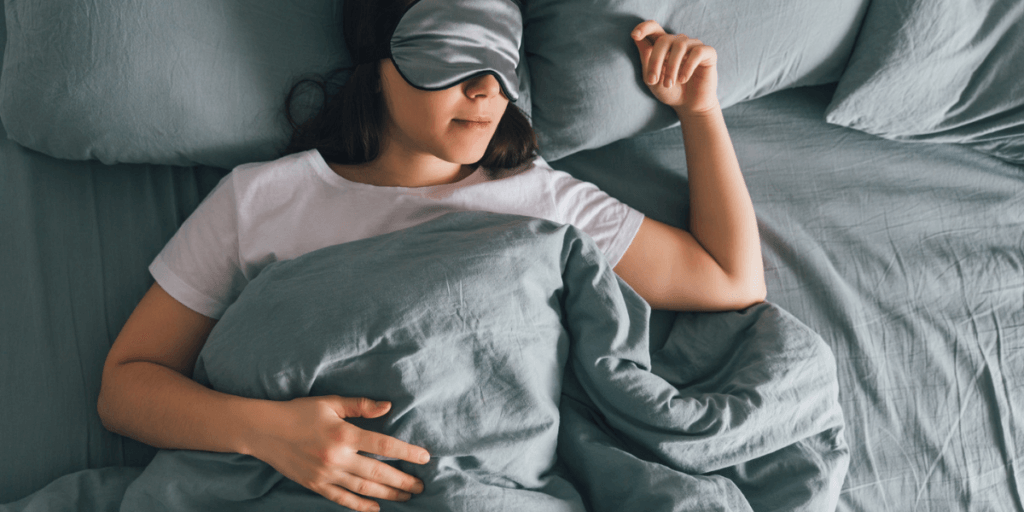
Did you know that you spend at least a third of your life sleeping? Sleep is so important for maintaining your health, but unfortunately, many people suffer from sleep disorders, such as sleep apnea, insomnia, restless leg syndrome, and narcolepsy. It’s not just about how much sleep you get each night, but the quality of sleep is also important for your health. Day Light Savings is just around the corner, and it is important to prepare yourself for the loss of an hour by making sure you are still getting the proper amount and quality of sleep. Sleep Awareness Week occurs this year on March 10th – March 16th and highlights the importance of good sleep health to aid in our work towards our best personal, family, and professional goals.
Benefits of Sleep
Similar to eating and drinking water, sleep is an important function for our bodies to survive. Sleep is important for storing memories in the brain, nerve cells communicate while you sleep, and sleep is suggested to remove toxins from the brain that build up during the day while you are awake. When you don’t get enough sleep, research has shown that there is an increase in risk for other disorders and health issues, such as high blood pressure, cardiovascular disease, diabetes, depression, obesity, and even cancer.
Sleep Quality
When you don’t get the proper amount of sleep, you create what is known as a sleep debt, which is the amount of sleep you need to recover. This can build up overtime, so even if you aren’t getting enough sleep during the week due to work or other duties, the weekend might not be enough to recover the amount of sleep your body needs. About 1 in 3 individuals don’t get the proper amount of uninterrupted sleep. The amount of sleep recommended varies by age and is completely dependent on each individual, however, the NIH suggests the following:
- Infants aged 4-12 months need 12-16 hours a day including naps
- Children 1-2 need 11-14 hours a day including naps
- Children 3-5 need 10-13 hours including naps
- Children aged 6-12 need 9-12 hours
- Teens aged 13-18 need 8-10 hours
- Adults aged 18 and older need 7-8 hours. Other studies suggest adults need 7-9 hours of sleep
Sleep Disorders
Around 50-70 million Americans suffer from sleep disorders. There are over 70 recognized sleep disorders, the four most common sleep disorders include:
- Sleep apnea – which is when your breathing is interrupted or stops and your body forces you to wake up and catch your breath.
- Insomnia – this is when you have a difficult time going to sleep or staying asleep.
- Restless leg syndrome – this causes uncomfortable or unpleasant sensations in the legs and an irresistible urge to move them, causing difficulty sleeping.
- Narcolepsy – this disorder is characterized by excessive sleepiness, sleep paralysis, hallucinations, and in some circumstances partial or total loss of muscle control (known as Cataplexy).
There are many reasons for being affected by sleep disorders, such as work schedule, lifestyle choices like taking medications to stay awake or drug and alcohol abuse, undiagnosed or untreated medical problems including stress or anxiety, or having medical conditions or taking medications that interrupt sleep patterns.
Tips for a Good Night’s Sleep
Try to keep to a regular sleep schedule, even on the weekends. Set a time to wake up and go to bed and try to stick to it. Exercising is important, but try not to exercise a few hours before going to bed. Avoid nicotine and caffeine up to four hours before bed and try not to drink alcohol before sleeping. Keep your bedroom as your bedroom – avoid having a computer, watching tv, or doing work in your room. Keep it at a comfortable temperature and make sure to eliminate bright lights when going to sleep. If you are unable to fall asleep for 20 minutes, it is recommended you leave your room and focus on something else until you are tired.
Community Care Physicians
Tech Valley Sleep Center
Community Care Physician’s is proud to have our Tech Valley Sleep Center, which is accredited by the Academy of Sleep Medicine. Tech Valley Sleep Center is located at 2125 River Road, Suite 203 in Niskayuna. Tech Valley Sleep Center is a full-service, state-of-the-art facility, staffed with sleep-certified physicians and technicians who are dedicated to helping you enjoy healthier sleep. This office offers diagnosis and treatment of a wide range of sleep disorders. They offer overnight testing in comfortable, private patient rooms, all using the latest digital equipment. To learn more about their team and services provided, visit their website here or call (518) 831-8540.
If you would like assistance getting in touch with this office or finding a primary care physician, Community Care Physician’s Concierge Care Coordinator would be more than happy to direct you to the best one for you. Call (518) 782-3800.
Sources
https://my.clevelandclinic.org/health/articles/12150-tips-for-a-good-nights-sleep
https://www.sleepfoundation.org/press-release/national-sleep-foundation-awareness-week
https://www.sleepfoundation.org/
https://www.nhlbi.nih.gov/files/docs/public/sleep/healthysleepfs.pdf
https://www.nhlbi.nih.gov/health-topics/sleep-deprivation-and-deficiency
https://www.mayoclinic.org/diseases-conditions/sleep-disorders/symptoms-causes/syc-20354018
https://www.ninds.nih.gov/Disorders/Patient-Caregiver-Education/Understanding-Sleep#8
